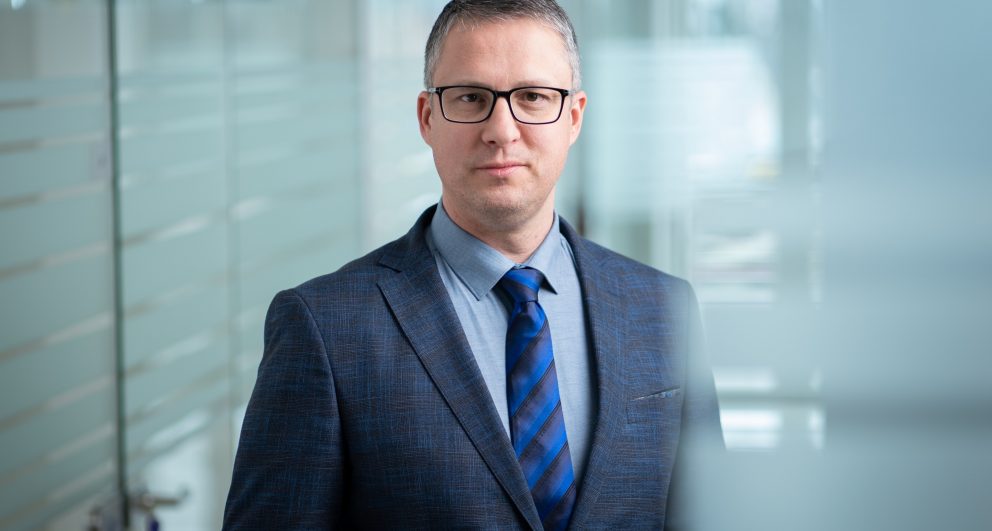Path towards the licence for the provision of crowdfunding services: the experience of CrowdedHero

First steps – a year and a half ago
More than a year and a half ago, the founders of CrowdedHero were preparing, with some concern and scepticism, for the first online talks with the FCMC team. The cause for concern was simple – we did not have any direct experience in working with the FCMC, and we were not familiar with the working style of FCMC experts. It was already during the first meeting that the regulator's representatives surprised us with a forthcoming attitude and we felt their interest in our business model and their desire to understand all aspects of the crowdfunding business. The planning began, with all possible resources involved in the development of processes, policies and documents. We also had to involve several sectoral experts in the fields which lacked competence at that time, for instance, regarding the General Data Protection Regulation.
How crowd-friendly is the Commercial Law?
The situation was complicated by the Latvian Commercial Law, which can hardly be deemed friendly towards a crowdfunding company. To be more precise, the Commercial Law does not provide for a modern, simplified and remote procedure for attracting growth capital from crowdfunding platforms or a large number of investors. Unlike Estonia, Latvian limited liability companies cannot maintain a register of company members, as only joint stock companies are in a position to do this. The relevant amendments to the Commercial Law represent a topical issue and they are also advocated by the Latvian Startup Association and foreign investors.
Step by step, drafts of procedures and policies were prepared. During the work process, we learned much and created a business model that aligns as far as possible with our vision.
Our regular online meetings with the FCMC working group were very productive, enabling open discussions on contradictory procedures and aspects of the process and providing us with the opportunity to align procedures and documents with the requirements established by the law in a timely manner.
The work proceeded smoothly. On 16 May 2022, the CrowdedHero team sent the whole document package along with the application for the licence and the waiting began. Even over this period, we had operational discussions with FCMC representatives to solve issues pending from the pre-verification stage. We should once again compliment the professional work of the FCMC. We are aware of many European precedents when the registration process of a similar company takes nine months. We received the long-awaited message: "The FCMC issues the first EU-wide authorisation to provide crowdfunding services in Latvia to SIA CrowdedHero Latvia" immediately after three months.
"Dry residue"
What is statistical cooperation between CrowdedHero and the FCMC like? 10 online calls have been made, 26 procedures comprising 347 pages and 107 000 words have been drawn up. However, this is not the end of the story yet. Our company intends to receive (though the FCMC) the authorisation to provide international services, as the new European Union (EU) regulation provides for the operation of FinTech companies in all EU Member States without a physical presence in each country. In the next stage, CrowdedHero plans to approach the regulator to receive the authorisation for offering investment in loans alongside the authorisation to attract investment in business capital. Since the cooperation aspects are already known, we do not foresee any obstacles or complications in this work.
What are our suggestions for other FinTech companies? According to our experience, we would encourage intense debate and the search for compromises and solutions, since communication with the FCMC has been productive and result oriented.
Crowdfunding perspectives
Over the last decades, the three Baltic States – Estonia, Latvia and Lithuania – have been an in-demand investment market to European investors. They stand out as the region with a higher growth rate and bigger potential profit opportunities than the so-called old EU Member States. The crowdfunding platform Funderbeam has already been successfully operating in Estonia for 10 years and has become a major player in the Northern European market. Latvia has become a crowdfunding player in P2P (peer-to-peer) or investment loans owing to the platform Mintos and the related alternative loan company group that has already expanded its business in Latin America, Africa and Asia.
An increasing number of people search for opportunities to invest free assets and crowdfunding platforms provide an opportunity to explore not only business ideas but also risks, the ability to pay out dividends, exit strategies and other factors. Although venture capital will not dominate the way companies in the Baltic region finance their development in the near future, we look forward to developing the culture of private investors in Latvia and offering new and prospective companies a modern way of attracting investment via the opportunities offered by CrowdedHero.
Along with the introduction of the new EU regulations and active work by the local regulators, the FinTech market will rid itself of high risk and the platforms which are not managed according to the best practice and thus significantly harm the sector's reputation. Therefore, platforms registered in Estonia but, in fact, conducting unlicensed business from Latvia should be subject to stronger control.
Responsibility for the content of publication lies with the author.
FCMC commentary on the examination of the application for the authorisation submitted by CrowdedHero
Mārtiņš Grakauskis, Chief Supervision Expert of the FCMC's Financial Innovation Department

When applying for the authorisation to provide crowdfunding services, the team of CrowdedHero worked professionally, and all the documents produced met very high standards, covering all requirements established in regulatory acts. The information and documents requested additionally were also submitted in a timely manner.
The overall process of granting the authorisation took three months. The first month, as established in the European Union regulation, was dedicated to examining the completeness of the submitted application and documents, and during the other two months the FCMC examined the content of the submitted documents.
The cooperation with the CrowdedHero team was also effective owing to the pre-licensing stage that was introduced by the FCMC and fully lived up to its expectations in practice. During the pre-licensing stage, the business model selected by the company, types of services, officials, as well as most of the internal draft policies and procedures were provisionally assessed in advance. Thus, the official stage of examining the application proceeded more smoothly.
Of course, the examination process involved challenges, as crowdfunding is a new regulated market segment in Latvia and the regulatory and implementing standards developed in accordance with the regulation have not taken effect yet (at the moment of examination only their drafts were available). Nevertheless, all unclear issues were solved, we also seized the opportunity to receive clarifications from the colleagues representing the European Securities and Markets Authority.
In the light of the experience gained from examining the application by CrowdedHero, we certainly encourage other potential crowdfunding service providers to take the opportunity to timely approach the FCMC under the pre-licensing stage so that the official stage of examining the application would be as smooth and effective as possible.
